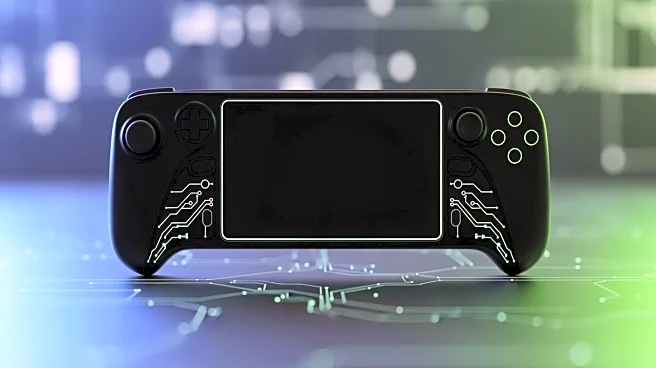What's Happening?
Valve has announced that the development of a next-generation Steam Deck 2 is not feasible at this time due to the lack of suitable silicon chips. This statement echoes a similar announcement made two
years ago. Valve's hardware specialist, Yazan Aldehayyat, indicated that significant performance improvements are necessary for a new version, which are not expected until at least 2027. The company is waiting for advancements in silicon technology that would allow for a substantial upgrade in performance without compromising battery life. Current options, such as AMD's Strix Point APU, do not meet these requirements.
Why It's Important?
The delay in releasing a new Steam Deck model underscores the challenges faced by the gaming industry in balancing performance with power efficiency. This situation highlights the dependency on advancements in semiconductor technology, which are crucial for the development of portable gaming devices. The delay may impact Valve's market position as competitors continue to innovate. Additionally, it reflects broader trends in the tech industry, where the pace of hardware innovation is often constrained by the availability of cutting-edge components.
What's Next?
Valve may explore alternative chip architectures, such as ARM, for future iterations of the Steam Deck. However, this would require significant ecosystem development and is considered a long-term project. The company is likely to continue monitoring advancements in silicon technology, particularly from AMD, to identify opportunities for a next-gen device. The gaming community and industry stakeholders will be watching closely for any updates on Valve's plans and potential collaborations with chip manufacturers.









